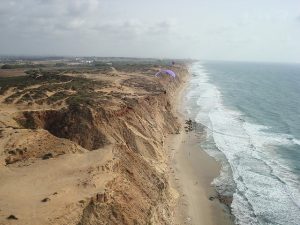
Telling the truth about environmental crimes can have consequences. If you need to get the story out to editors here are tips to help you avoid leaving a digital footprint. If you live in some countries like Iran your life might be in danger.
News that Siri Apple engineers are probably listening to your intimate conversations and acts through Siri is alarming. In a way many of us take the “who cares” approach to privacy because if we all share it, what do we have to lose? For most of us average people our lives are boring compared to others.
Our conversations at the doctor’s office or in the bedroom may not at all be that interesting. It’s when you have something to lose, like your career or life that you wonder about the extent of your digital footprint. We’ve had people reach out to us from countries such as Saudi Arabia, Iran and Egypt. They have told us about crimes in their local environments that they could never report to the authorities. Nuclear spills. Activists in jail. Activists who have disappeared because they thought they were above the law. They weren’t.
Update in 2022 when no-one in Iran or China can browse the internet freely without being spied on. A trusted VPN is more important than ever.
Tips for hiding your online identity
If you want to whistleblow to a news site and avoid detection, here are some general tips that might help you avoid getting found out.
- Buy a burner phone: colleagues from my startup used to laugh at me every time I travelled to the US or Europe because my phone number would change. I didn’t do this to avoid detection. It was just a cheaper solution for me than keeping the same number or buying an international plan on my everyday cell phone. With cash it’s easy to buy a cell phone and a SIM card to communicate with others while avoiding building on your previous personal digital footprint. In some countries, like India for instance you might have to supply ID to buy a SIM. Try to work with locals to figure out a good solution.
- Turn off location apps. Any way you slice it, if you want to avoid being found you should go to your settings are turn off all location tracking apps like Waze, GPS, photos, etc.
- Go on “stealth mode” when you search on Google, Yahoo or any other search engine. The browser you use has a privacy mode. It’s also known as incognito mode on some browsers. Make sure you delete all cookies and restrict the browser from sending location details.
- There is a server that deflects your location. Every day people use this to watch streaming TV in locations that might not let them. You can Google VPN and choose from a site you trust. Reddit has some good threads on what company to work with. Stay up to date on Reddit for the best advice.
- Make sure social sites you might use are not tracking you. We have a lot of motivation to provide personal information to Facebook, on Twitter, LinkedIn, Instagram and others, because, hey isn’t that all the fun to say I ate at Nobu when I was in New York City! But use your head. These sites follow and track what we do and where we go even when we have logged out of them. Like something, or share something? You are being tracked.
These steps might help you clear your tracks:
For Facebook – Go to Facebook settings > Advertising to control – this is whether ads are targeted based on your clicks in and out of Facebook. You don’t want this.
For Twitter – Go to your Access settings > Security and Privacy area. Then uncheck the box for “Tailor Ads”. You don’t want this. Tailoring ads means they are tracking you.
For LinkedIn – Go to your Privacy and Settings > Accounts > Managing Advertising Preferences. Uncheck anything that looks like it might be tracing you.
And voila. Enjoy being a dissident. Now start saving the world.



